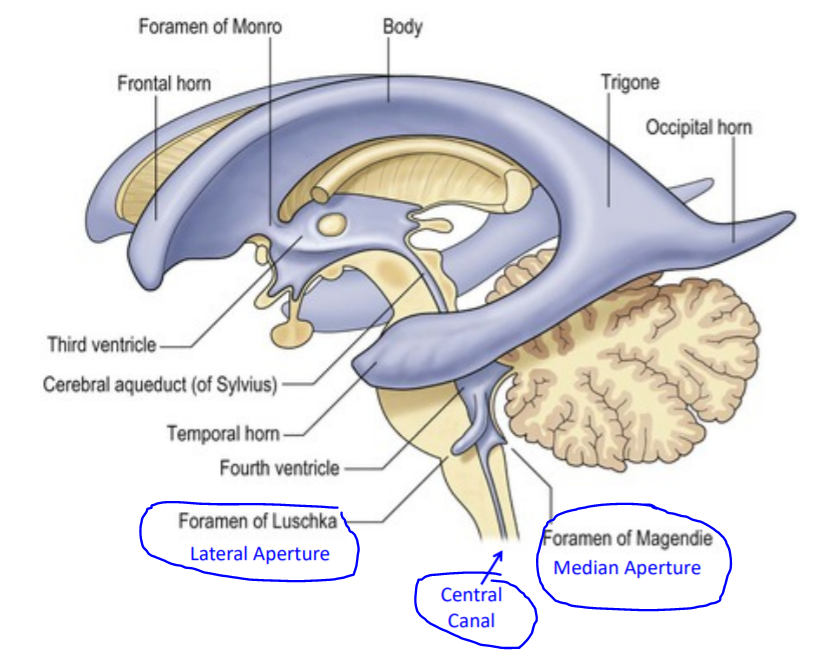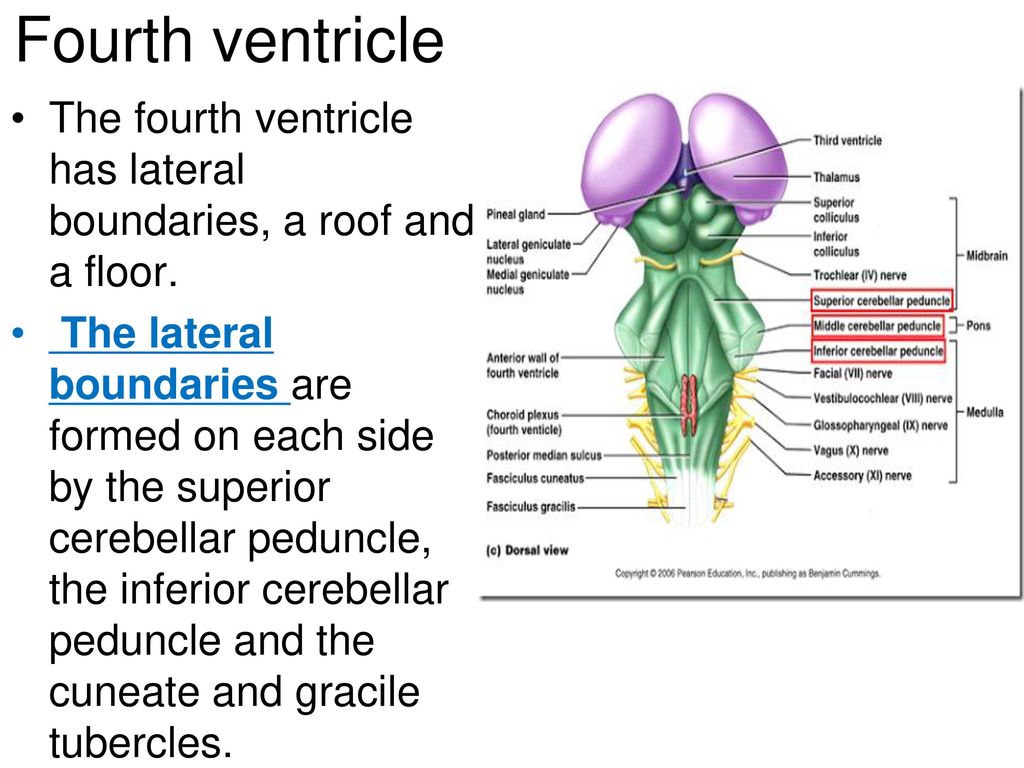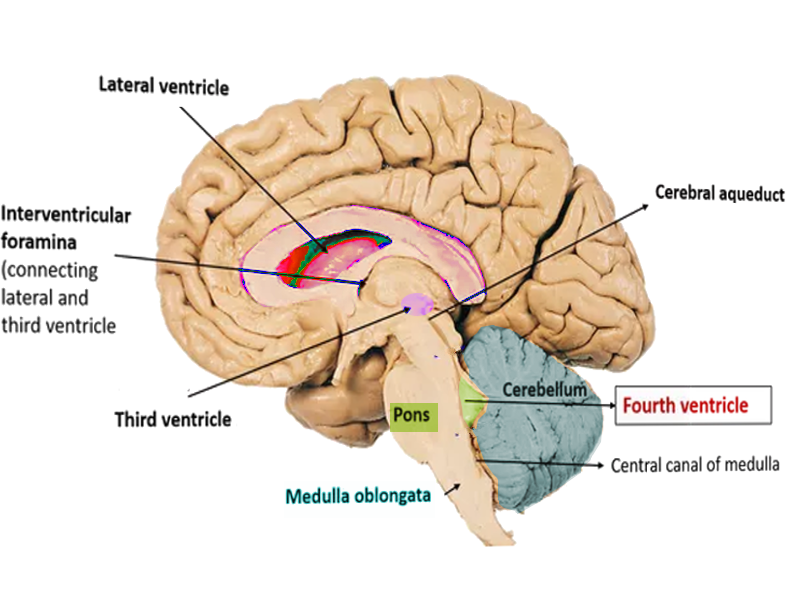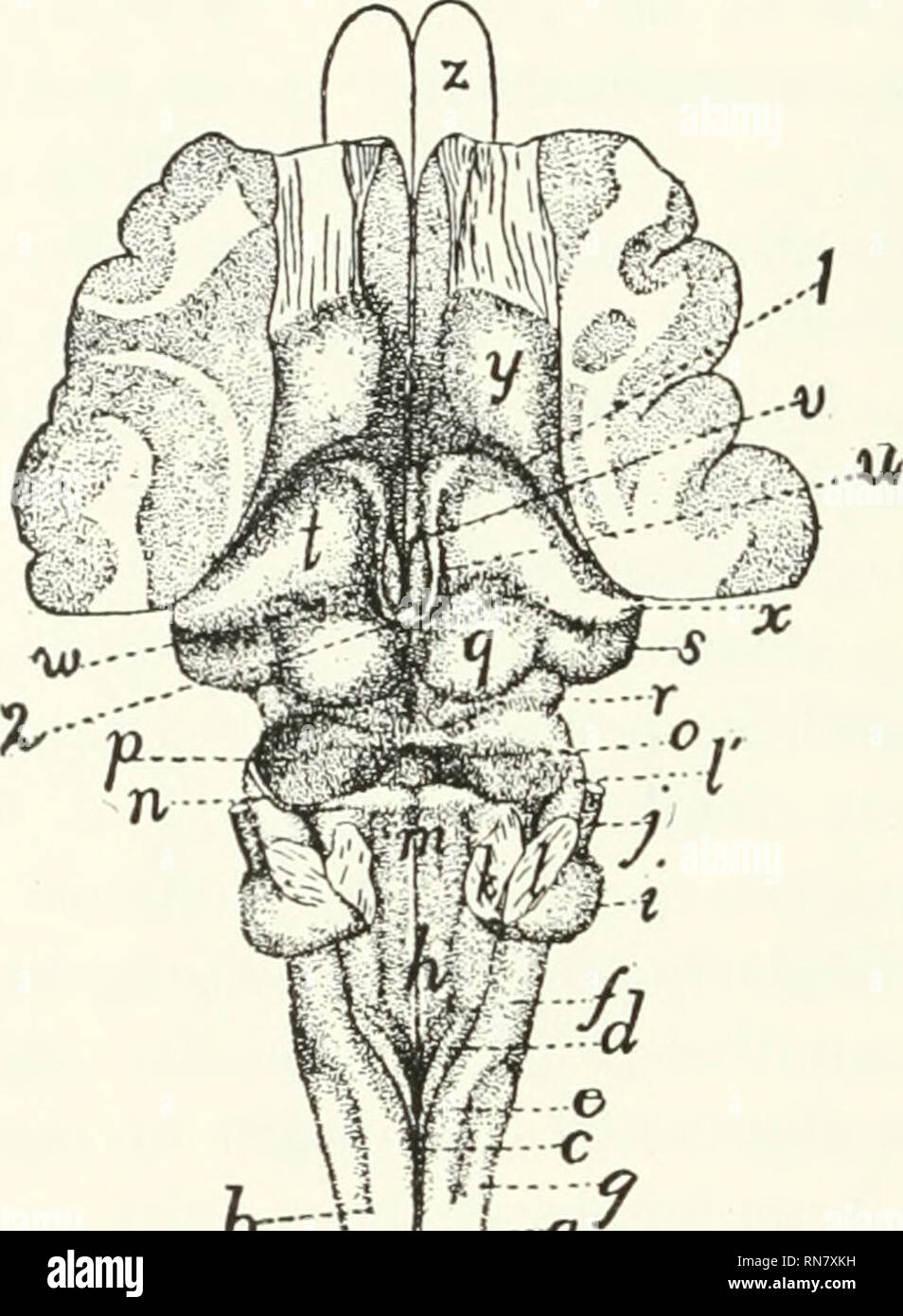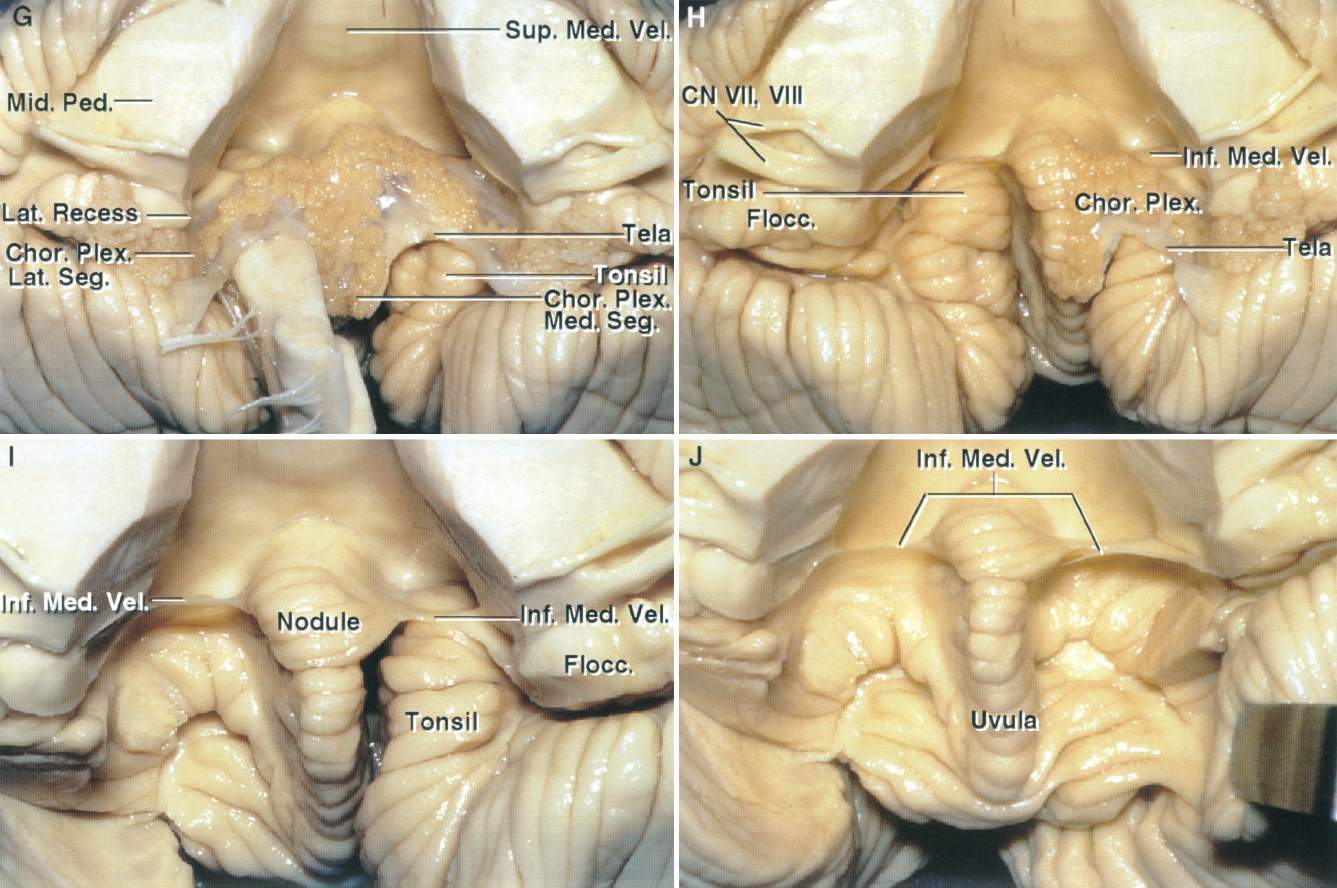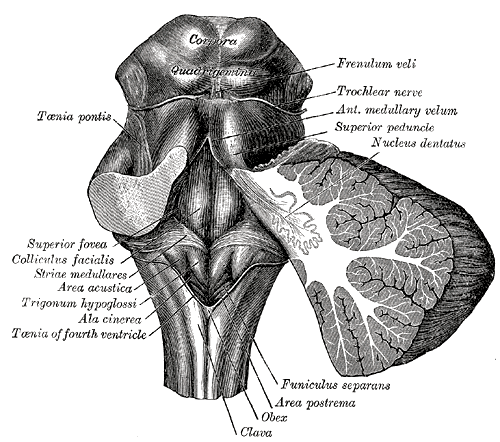Csf produced and or flowing into the fourth ventricle can exit to the subarachnoid space through lateral apertures and a single median aperture located in the inferiorportion of the roof.
Fourth ventricle roof formation.
The obex is also a.
Inferior roof of the fourth ventricle.
Along with the ventricular cavity the roof plate.
The apex of the tent goes posteriorly into the white core of the cerebellum.
Both the squamous roof plate and columnar neuroepithelium can be visualized in live embryos of the cdh2 cdh2 tft reporter line and we followed the progress of ventricle expansion and roof plate formation from 18 hpf in a dorsal view using time lapse confocal microscopy figure 1 video 1.
The fourth ventricle contains cerebrospinal fluid.
The roof of the fourth ventricle is tent shaped rising to an apex called the fastigium that divides the superior roof from the inferior roof.
Just behind its outer surface is the lingula the.
The roof of fourth ventricle is the dorsal surface of the fourth ventricle.
From the third ventricle it flows downward along the aqueduct of sylvius into the fourth ventricle where still another minute amount of fluid is added.
The upper portion of the roof is formed by the cerebellum.
The fourth ventricle has a roof at its upper posterior surface and a floor at its lower anterior surface and side walls formed by the cerebellar peduncles nerve bundles joining the structure on the posterior side of the ventricle to the structures on the anterior side.
It corresponds to the ventral surface of the cerebellum.
Finally the fluid passes out of the fourth ventricle through three small openings two lateral foramina of luschka and a midline foramen of magendie entering the cisterna magna a fluid.
The inferior medullary velum is all that remains of the connection between the nodule and flocculus.
Generalized lethargy or actual sleep the slender lobe situation between the roof of the fourth ventricle and cellebelar hemisphere is known as.
The fourth ventricle has an anterior ventral floor with a characteristic diamond shape named the rhomboid fossa and a posterior dorsal tent shaped roof.
The roof of the 4th ventricle is tent shaped and has upper and lower sloping surfaces.
Specifically it spans from the obex an area in the medulla.
Hypothalamic or thalamic stimulation that depresses reticular formation activity in the brain stem results in.
The upper part of the roof is composed by a thin sheet of white matter the superior medullary velum that stretches between both superior cerebellar peduncles.
The caudal tip of the fourth ventricle where it becomes the central canal is known as the obex.
It has a diamond shape and is located in the upper portion of the medulla.
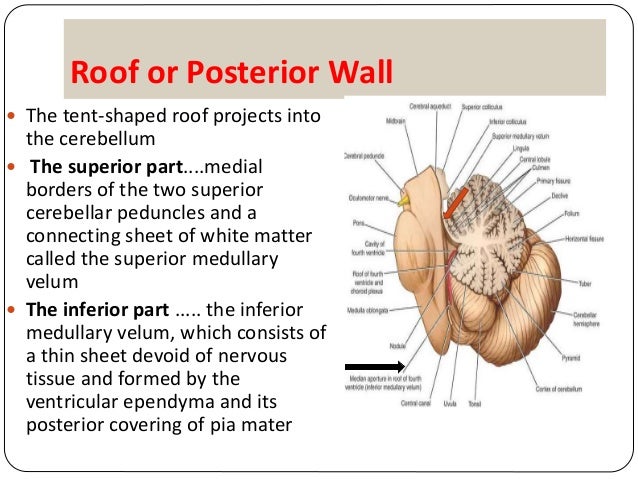






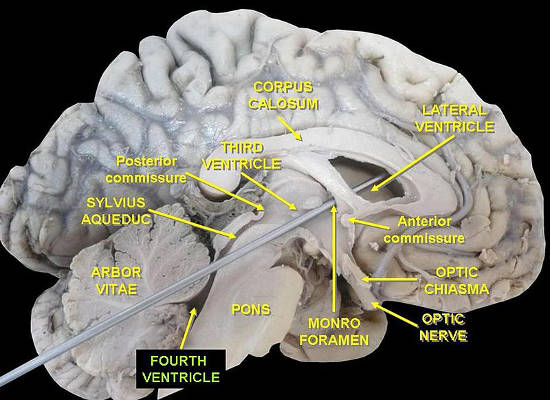
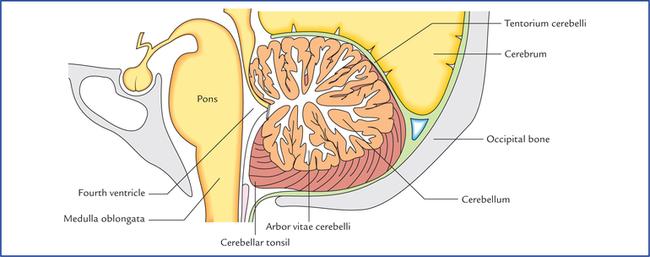
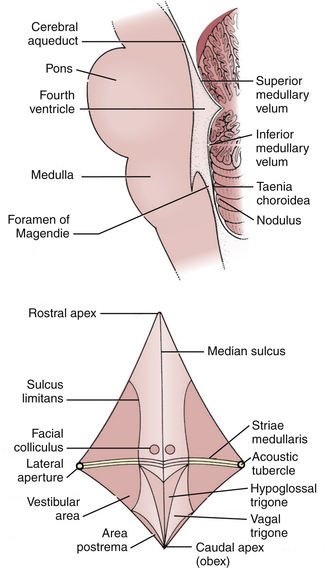


:background_color(FFFFFF):format(jpeg)/images/library/13983/IxIebEKGr4ReRbXGlvvmhg_Ventriculus_quartus_01.png)
